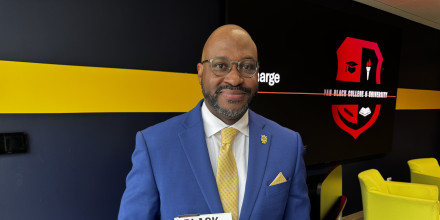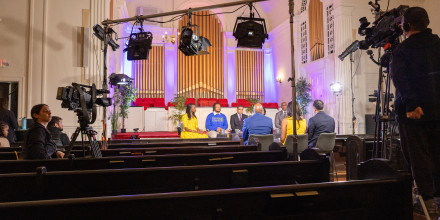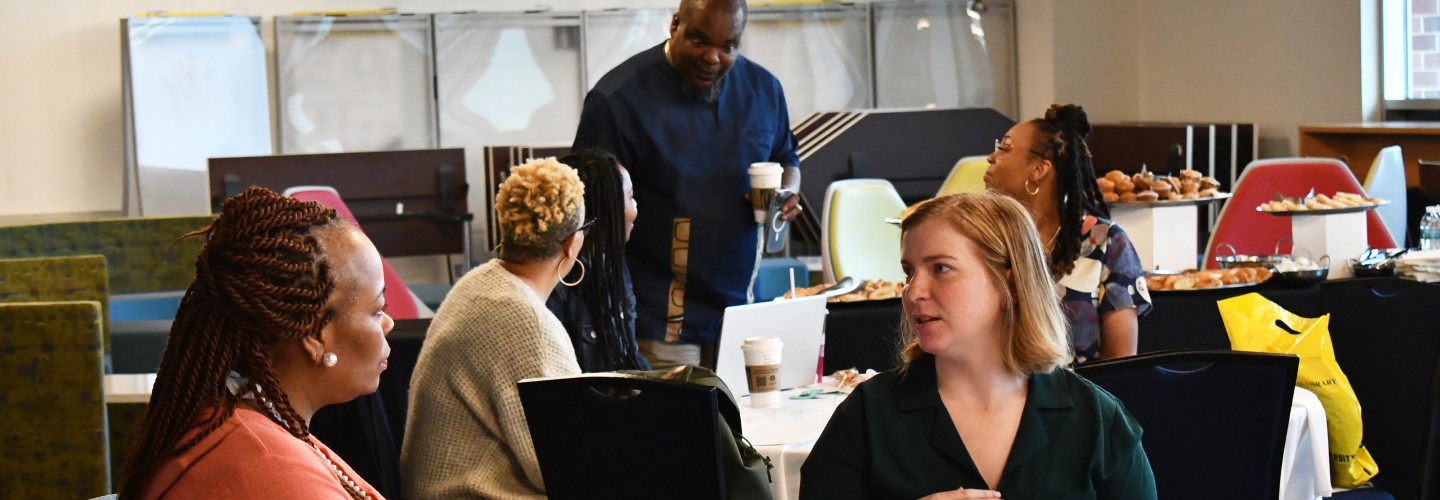
JCSU School of Social Work Addresses Disparities at Black Mental Health Symposium
Charlotte, N.C./March 24, 2023 – Mental health issues have been on the rise for decades, but new statistics indicate that Black men are struggling with their mental health now more than ever before.
A systemic history of racism, lack of attention to cultural and generational trauma and the stigma associated with seeking out mental health care have kept many Black men trapped in a cycle of mental anguish.
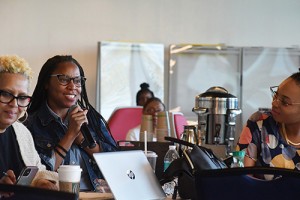
The School of Social Work at Johnson C. Smith University decided to highlight these disparities and discuss methods to eliminating the stigma around mental health care for Black men during its Black Mental Health Symposium on Thursday, March 23.
The Symposium drew Social Work students and practicing social workers and life coaches to JCSU for a discussion led by Black men who are immersed in the world of mental health on a daily basis.
“When we think of about the trauma this community is facing, we have to increase the conversation around mental health treatment,” said Dr. James T. Freeman, associate professor of Social Work at Johnson C. Smith University. “Yes, we have a crisis. But we also have an opportunity to do better.”
Speakers included Dr. Freeman, Mario Jovan, A. Maurice Harvey and O’Neil Walker. The event was founded and spearheaded by Tammie Elliot.
The Symposium opened with a simple question: “at what point does a person know they are a man?”
Attendees shouted out answers like “when he hits puberty,” or “when he begins working.”
In reality, men are typically expected to be hyper-masculine, protective providers. So, the stigma is that seeking out or discussing mental health issues can label a man as weak.
But for Black men and other men of color, the barriers toward mental health care are numerous.
“Systemic racism did a couple of things,” said Freeman. “If we look at the development of the Black man in America, there is trauma.”
Black men who were forced into slavery experienced intentional emasculation when their wives and children were taken from them and assaulted. They were made to feel helpless, unable to protect the people they loved the most.
Slavery, segregation, Jim Crowe Laws, race-targeted experiments and the general racism faced by people of color even today has left a trail of generational trauma that can make it difficult for Black men to find someone they trust to confide in.
When a Black man does seek out mental health care, it can be difficult for him to find a provider who looks like him.
Each of the speakers are doing their part to promote diversity in the mental health field. They’re also training up future leaders and having candid conversations about ending the stigma around mental illness in the Black community.
Freeman emphasized the need for African-centered methods of social work. The current model of social work, he said, doesn’t take in mind the unique experiences of communities of color. He works at JCSU where he is training future social workers, and credits HBCUs for being a place where these practices have been and can continue to be adapted.
Jovan is a career coach who is addressing the need for leadership coaching in the Black community.
“More than 80 percent of men of color have never had a leadership coach,” he said. “On top of that, men of color have a hard time finding coaches who look like them.”
His company Messy Roots addresses this by providing retreats, seminars, leadership circles and master classes that connect Black men with Black male career and leadership coaches.
Walker works as a social worker at a STEM school. He is also a therapist for couples and children. When reflecting on the idea of manliness, he said that the Western world has no concise idea of what it means to be a man while Jewish, African, Latinx and Middle Eastern cultures have clear definitions.
He said awareness is the key to becoming a man of leadership, stating men should be spiritually, emotionally, financially and physically aware of themselves to be successful.
Harvey is the president of Choose B.E.T.T.E.R. 4 U, PLLC, which focuses on therapy that addresses the unique experiences and needs of the Black community and communities of color.
“When we know better, we do better,” he said. “Knowledge isn’t power. Applying knowledge is the real power.”
He shared breathing exercises and easy ways to practice mindfulness throughout the day.
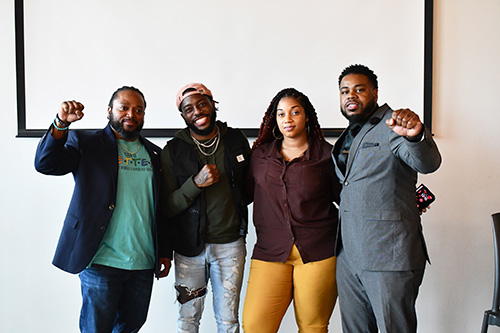
When asked how women can help Black men seek mental health care when needed, the panel agreed that listening and taking the time to really understand the man their encouraging can go a long way.
“Learn the recipe for a difficult conversation,” said Walker.
Together, the panel concluded that there is a long way to go to making a systemic impact toward ending the stereotypes and stigmas surrounding mental health and Black men.
“I would say the first step is pushing stereotypes and bias aside and really listening and getting to know someone,” said Walker.
“I think implicit bias training is great,” said Harvey. “But what are people doing after the training ends? How are we holding people accountable and quantifying their interactions with people?”
The School of Social Work holds this symposium annually. For more information, visit the School of Social Work online.


